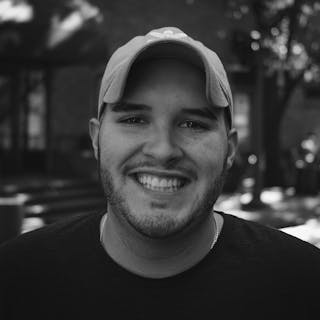In this week’s episode of Taco Bout It, Michael Gogan is joined by Doug Quinn, the Executive Director of the American Policyholders Association (APA) to discuss the non-profit’s role in the insurance industry, ridiculously orange walls, and The Great Corn Tortilla Debate, which Quinn claims is the reason the Ancient Mayan and Incan civilizations fell into ruin.
How The APA Was Founded
Quinn starts off with an explanation of the APA: it’s a 501C4 non-profit organization that focuses specifically on lobbying to facilitate the prosecution of criminal fraud perpetrated by insurance carriers, their employees, the vendors they hire, the independent adjusters, and the engineers. There are a lot of different disputes with insurance — some is just misunderstanding — but the occasion of criminal fraud arises.
“We’ve had experiences with criminal fraud,” Quinn said. “We don’t need to pass any more laws or legislation or have any sort of dispute or arguments because the laws against fraud in every state are very clear.”
In a case of alleged fraud, the APA starts by lobbying with the prosecutors and the Attorney’s General to get them to start prosecuting, which they are willing to when spoken to about the mission.
Quinn joined us this week from “The HOD” or “The Horribly-Orange-Domain, which the APA’s post-Hurricane Sandy rental property. It was one of the only places they could find with so many thousands of people displaced from their homes. When they first walked in, Quinn said they noticed the horribly orange walls.
“They’re shockingly scary,” he said. “So we call it “The HOD,” and this is where we run the APA out of, aside from planes, cars, and hotel rooms.”
Quinn goes on to tell his story as ‘just an average guy’. He had just bought a house on the water, living the life “fat, dumb, and happy,” and then Hurricane Sandy rolled in and wiped it all away. He experienced three or four feet of water that took away everything he owned.
At first, he didn’t think it was going to be that big of a deal because it was supposed to be just an inconvenience for six months or so, because he had $250,000 worth of insurance. In fact, when he went to rent “The HOD,” after a month of living out of his car with his teenage daughter and couch surfing with friends, the landlord wanted a one year lease and Quinn said, “No way. I’ve a quarter-million dollars of flood insurance and I’ll be back home in six months.”
But that’s not what happened. Quinn’s insurance company paid him $0.37 on the dollar forcing Quinn to offer his landlord $100 extra per month just to go month-to-month at the orange domain. “And here I am seven years later, still paying my landlord an extra hundred dollars for month to month because my insurance didn’t work the way it was supposed to,” Quinn said.
What Quinn started to find out with Hurricane Sandy, as he started to get more politically involved with Government officials, was that it didn’t just happen to him. This insurance issue was happening to his neighbors, to his family, and to hundreds of thousands of Americans. There was massive fraud going on. Quinn fought it and was able to interact with a lot of people on a national level to get help. They were actually able to get someone arrested and have the engineering firm raided by the New York Attorney General. The guy ended up getting a slap on the wrist, but from that one arrest, Quinn said, he was able to get 144,000 claims reopened and around $700 million in extra claim money paid out to the people who had been shorted.
Soon after, someone reached out to him and suggested that instead of working on these problems in separate areas, they should work together on a formal basis. Quinn flew down to New Orleans in May of 2018 and the APA was born.
What does the APA do?
The APA promotes best practices with licensing agencies and governing bodies and monitor, identify and report on insurance fraud against property owners. They also advocate broadly for policyholder benefits and promote solutions in insurance coverage, the insurance claim process, and the repair and rebuilding process for Policyholders in every state.
How is APA funded?
The APA’s work is funded by its members and donations from individuals and businesses. They do not accept funding from insurance companies. You can become a member of the APA.
The APA’s Four Part Strategy
All the money coming into the APA is spent on a specific four-part APA strategy in local regions:
Step 1) Proactive Lobbying: The APA uses donations to lobby and establish lines of communications with elected officials and Licensing Boards. For example, they establish a rapport with the Attorneys General and the AG fraud departments. The APA supplies reports and brochures to the AG’s offices providing the AG, investigative, and prosecution units with common fraudulent tactics by Insurance company engineers and adjusters.
Step 2) Identity Fraud: APA Members are encouraged to report and provide evidence of fraud. The APA compiles evidence of specific cases of fraud committed by engineers, adjusters, and insurers so they can make formal fraud complaints directly to AG offices and state fraud units.
Step 3) Prosecute Fraud: By identifying the worst conduct, the APA does not need to wait years for civil litigation, or legislative changes that may take a decade. After the APA has identified criminal fraud the APA can go immediately to the executive branch and request elected officials to take immediate action to help a consumer.
Step 4) Publicize Fraud: Journalists from CNN, CBS Evening News, PBS, Frontline, 60 Minutes, USA Today, and The New York Times have all followed stories of how insurance companies have scammed and committed fraud against their consumers. The APA calls upon these established media contacts who follow consumer insurer fraud scams. The APA provides these media sources on the record statements by victims and whistleblowers to identify the criminal actors and acts.
The APA Wants To Work With You
“We believe very strongly in insurance,” Quinn said. “I’m actually a Financial Advisor by trade and we’ve recommended hundred of millions of dollars of insurance to our clients. I believe insurance is a very important risk management tool for Americans. It allows us to handle risk that we might not be able to handle on our own. It’s just a function when it doesn’t work.”
Quinn believes the APA is here to deal with cases when insurance doesn’t work. There are people who pay premiums their whole lives and then suddenly suffer a loss and the insurance doesn’t pay out. “We’re here to eliminate the part where insurance can become criminal fraud,” he said.
The APA wants prosecutors and contractors to work with them and understand that they have credibility. Quinn said it might be a year or two until the APA gets their first case, but in the meantime the APA is already impacting the contractor industry.
“They already know we’re there,” he said. “Our members are already wearing their APA gear to inspections, and they already know there is a set of eyes watching and they better step carefully because they really won’t be able to perpetrate fraud in darkness and anonymity anymore.”
Big thanks to Doug Quinn and APA for joining us this week on Taco Bout It!
Stay tuned for more episodes and blogs this season.





